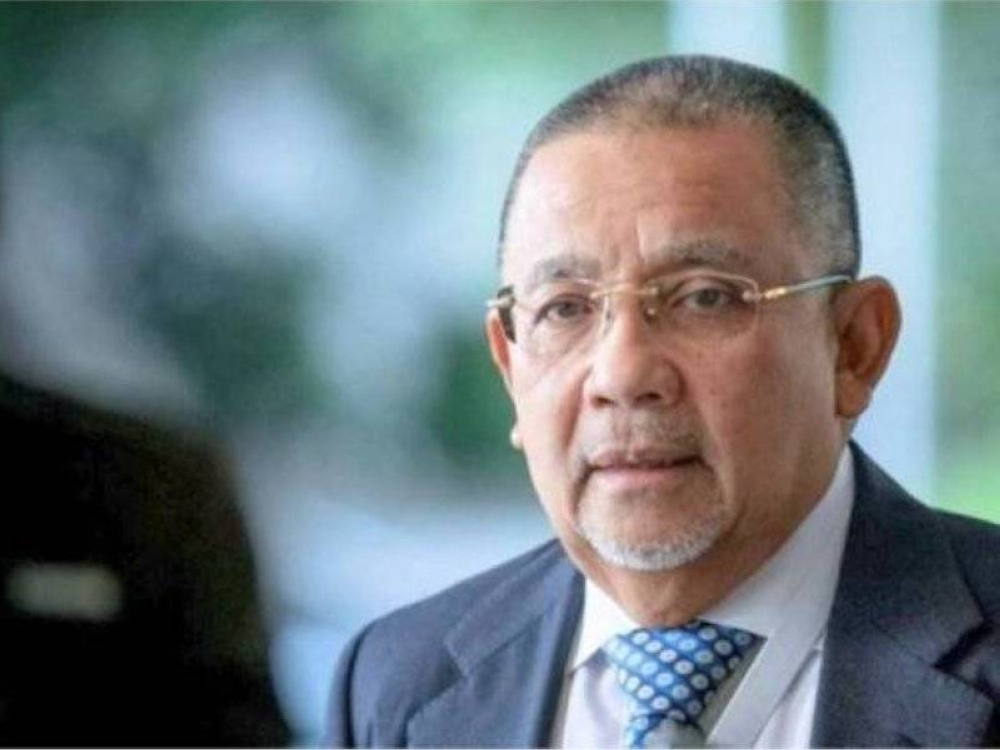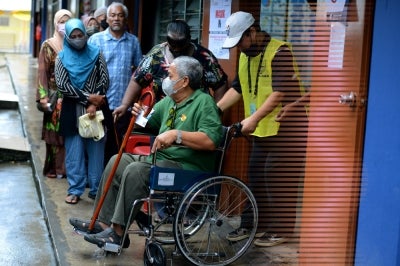Return of the veterans not enough to save Umno, says experts

SHAH ALAM - "Return of the Veterans" to save Umno just won't cut it if they want to make a great comeback, says experts.
Former party leaders that has either retired or left the party feels a sense of calling to rejoin the biggest Malay party of a late in their bid to "save" it following their continous downfall since 2018's defeat in the 14th General Election (GE14).
Universiti Putra Malaysia (UPM) political analyst Datuk Prof Dr Jayum Anak Jawan said that some veterans were being enticed to come back and help Umno navigate in a new political landscape.
He cited news of former Negeri Sembilan Menteri Besar Tan Sri Isa Samad who was accepted back into Umno as announced by party secretary-general Datuk Dr Asyraf Wajdi Dusuki.
"One such personality to enter the Malay party is Isa Samad. He had his moment.
"Umno seems to be going strong, seen in the last Umno General Assembly, we witnessed the president and his men dominating the top Umno leadership and hierarchy.
"However, the question in many people's minds would be, is that enough?" Jayum told Sinar Daily.
Jayum said Umno was a political party that has been abandoned by the Malays and was working hard to re-establish itself as the choice that has dominated Malay politics for the last half a century.
"To make a glorious comeback, Umno has to be totally revamped beyond changing the guards. It has to inject new blood from Malays, a new line of leadership that is more in tune with the values of the new century, and good governance.
Jayum said Parti Pribumi Bersatu Malaysia (Bersatu) and Parti Keadilan Rakyat (PKR) were Umno's main opponents in re-entering mainstream Malay group and national politics, not Pas.
The latter do not only appeal to non-Malays but also to mainstream Malays who recognise the importance of multi-ethnic politics in a multi-ethnic Malaysia.
He further added that the three main political parties competing for Malay votes and dominating Malaysian politics have not demonstrated that they are prepared to do so—neither Bersatu, PKR, nor even Umno.
"There is no change among them. Bersatu is less palatable to non-Malays as it is smeared by its association with the extreme views of Pas leaders such as (Pas president Datuk Seri) Hadi Awang.
"Umno, on the other hand, appears to be wavering, associating with PKR, Pakatan Harapan (PH), and Pas.
"It has no firm stand, thus looking as though it’s lacking leadership," he said.
Jayum further claimed that PKR was not "Madani" enough; despite its six pillars for constructing a Madani Malaysia that appear promising on paper, it has yet to achieve much in terms of implementation at all levels of government.
"The field of leadership in Malay politics and Malaysian national politics is still wide open.
"Meanwhile, the PKR’s present leadership is not formidable and cannot be replaced by anything but the slightest change in the political equation as the general elections loom in six states."
Meanwhile, International Islamic University Malaysia political analyst Associate Professor Dr Syaza Shukri described Isa's comeback as a strategy to win over the hardcore Umno base, which of course were the Malays.
She, however, did not think it would be a winning recipe.
"I don’t think they can win over Malays, who are on the fence with Isa Samad. It’s just a strategy to mobilise Umno supporters to get out and vote.
"It looks like there is a chance for him to be a candidate. Maybe more of a familiar face than so much of a leader," she added.
Echoing Syaza’s view, Singapore Institute of International Affairs Senior Fellow Dr Oh Ei Sun said that Umno and the Unity Government were desperate to hand over the Negeri Sembilan state government to Perikatan Nasional (PN) and were thus pulling out all the stops, one of the reasons why Isa Samad was making his step.
"Being a longtime politician, of course Isa doesn’t mind another opportunity to return to the political limelight," Ei Sun added.
Negeri Sembilan.
Isa was Menteri Besar for five terms from 1982 to 2003, where he was succeded by Umno deputy president Datuk Seri Mohamad Hasan, who helmed the state leadership post for three terms from 2004 until 2018.
Barisan Nasional and Umno lost the state in GE14 to Pakatan Harapan.
Datuk Seri Aminuddin Harun is the current Menteri Besar and is expected to dissolve the legislative assembly next month.
Download Sinar Daily application.Click Here!















